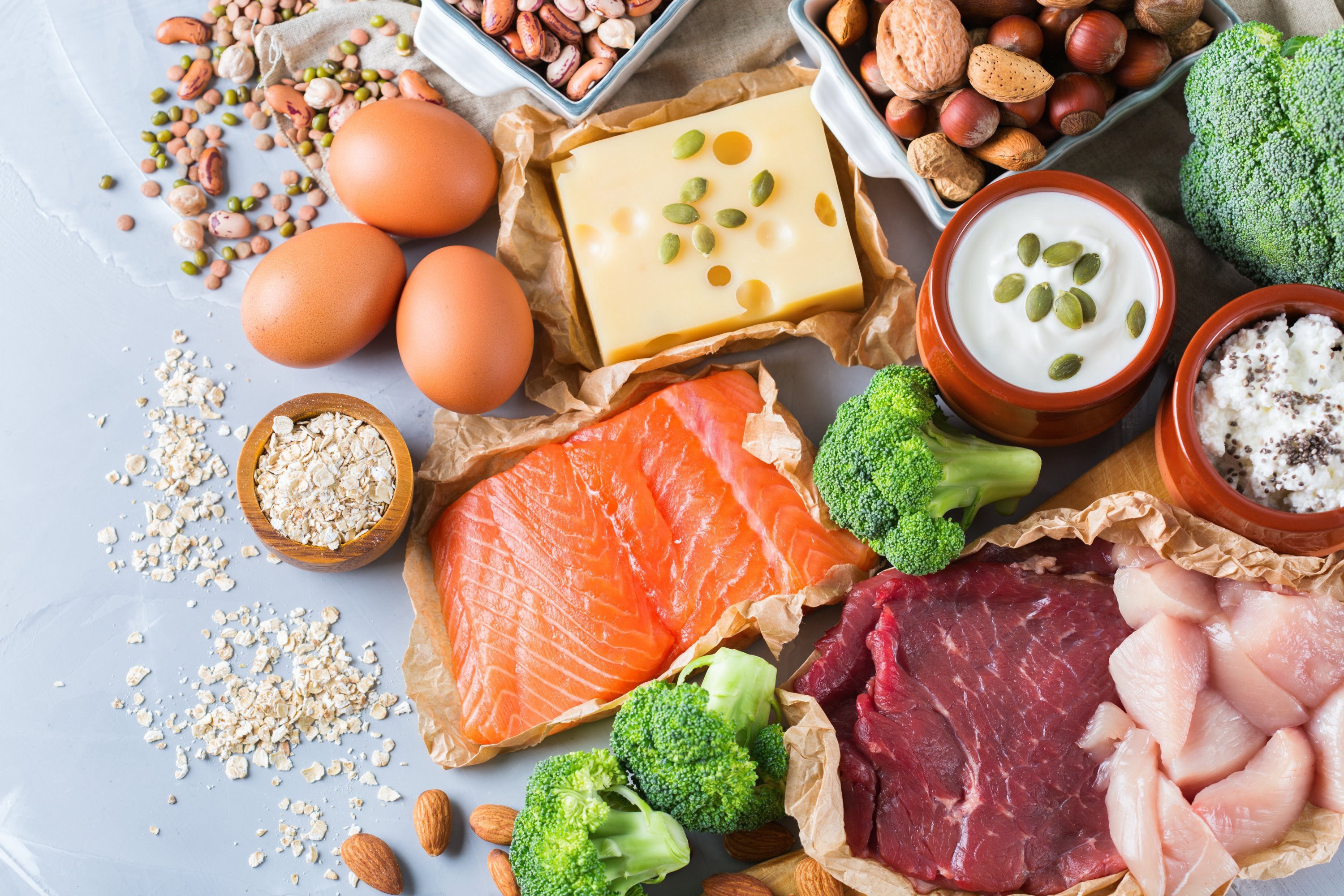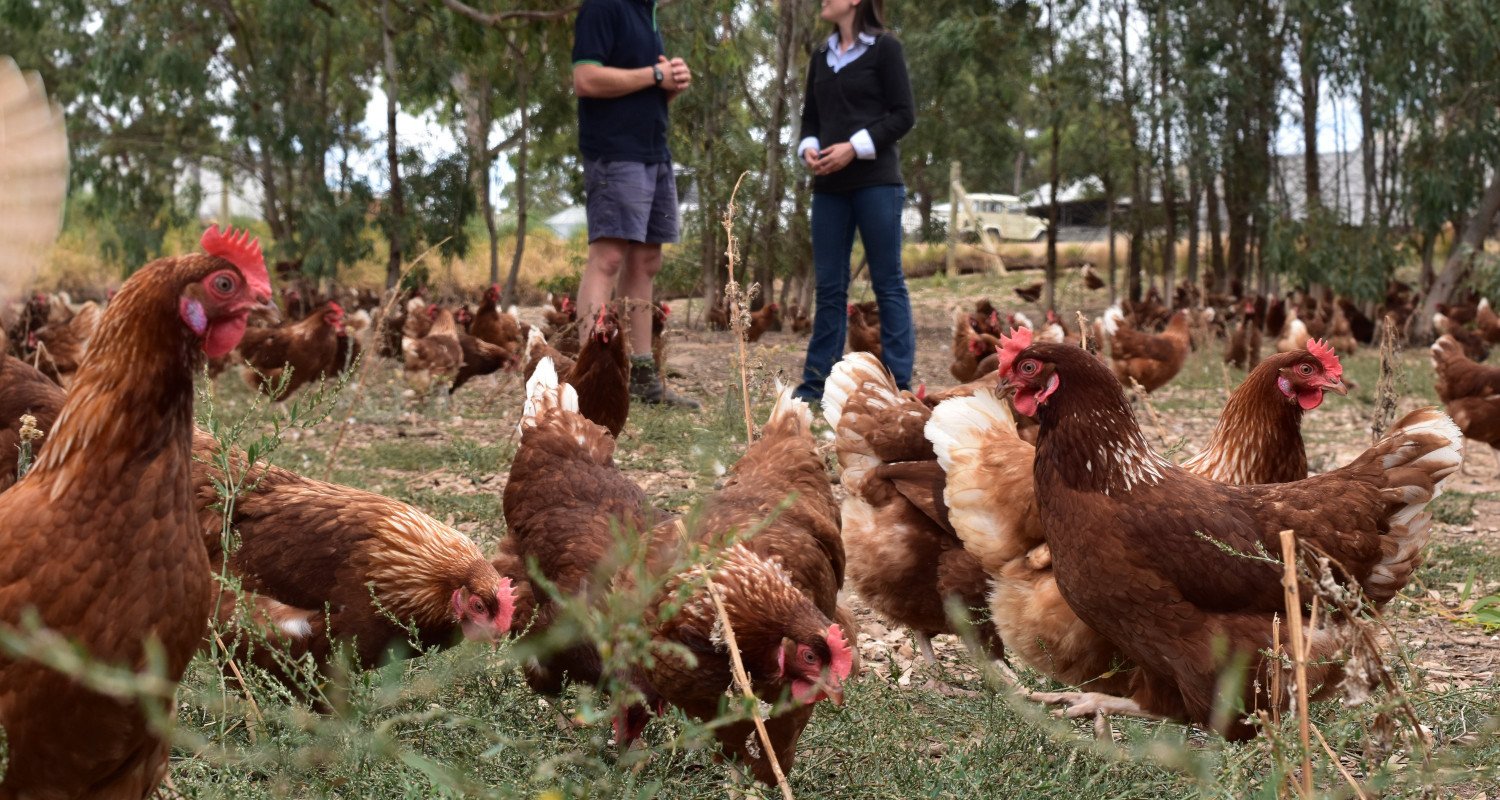
Protein in Eggs
Protein in Eggs
Protein is an essential macronutrient that your body and cells need to function properly. And while it’s found in a wide variety of foods, the humble egg serves up excellent quality protein in a highly digestible form – providing all the essential nine amino acids that best match your daily requirements.
Here, Australian Eggs look into what exactly protein is, how it benefits our bodies, and where best you can find this important macronutrient in your daily diet.
What is Protein?
The structure and function of our bodies rest on these important molecules called proteins. And made up of nine essential amino acids, protein aids in the regulation of your body’s cells, tissues, and organs.
These are generally divided between two types of protein:
- Complete Protein: Contain all nine amino acids that our bodies need (histidine, isoleucine, leucine, lysine, phenylalanine, tryptophan, threonine, methionine and valine). This type of protein is typically found in animal-derived sources such as eggs, red meat, chicken, fish and dairy.
- Incomplete Protein: Do not contain all nine essential amino acids. Plant foods, such as beans, soy and some nuts are some of the sources that fall under this category.
Benefits of Protein?

Protein plays a critical and crucial role as the macronutrient responsible to help build and repair tissue – the building block of our bodies.
Protein is essential for many reasons, including:
- Maintaining and building muscle mass, given our muscles are chiefly made of protein
- Helping you recover faster when injured
- Reducing appetite and hunger, given it’s the most filling of the three macronutrients – being fats, carbs, and protein
How Much Protein Do I Need?
According to the National Health and Medical Research Council, the Recommended Dietary Intake (RDI) of protein (per day) is 46 grams for women and 64 grams for men.
Luckily, Australians' intake of protein is increasing, with the 2011-12 National Nutrition Survey indicating the average Australian consumes 95 grams per day, well above the recommended dietary intake (RDI).
Some people, however, may benefit from increasing their consumption or may look to ensure they're obtaining the best quality protein sources, namely:
- Athletes: Studies have clearly shown that an adequate intake of protein is essential for healthy muscle development. Some athletes can benefit from greater protein intakes for the preservation of lean muscle mass and even weight loss. Active gym-goers who partake in resistance training can also benefit from extra dietary protein. Eggs are a highly bioavailable protein source that can readily be included in the diets of athletes. At just 74 calories per egg (310 kJ), they are one of the healthiest foods a person can eat without adding unwanted bulk.
- Vegetarians: While vegetarian diets can certainly include the appropriate intake of protein, the total protein content of a vegetarian diet is still significantly lower than an omnivore diet. Given their high protein quality and great digestibility, eggs can be a valuable addition to any vegetarian diet.
- Children and adolescents: During this key period of development, children and adolescents require more protein. Eggs are an excellent source of protein for children and adolescents due to their ideal amino acid profile, nutrient density and serving versatility.
- Older Adults: People aged 70 years and over have a greater protein RDI than younger people, as they may need further protein to stimulate muscle protein formation, assist wound healing and aid in ensuring robust immune function. Protein intake as high as 2g per kg of body weight per day (equal to 140g per day for a 70kg adult) has been recommended for older adults with severe illness or malnutrition. Eggs are an ideal protein source for older adults as they are economical, easy to prepare and soft to chew.
Do Eggs Have Protein?

Compared to other food sources, eggs are an excellent source of quality protein, providing all the essential amino acids in amounts that best match human requirements.
Just one serving of eggs (2 eggs) contains 12.7 grams of protein, representing 20% of the recommended dietary intake (RDI) for men, 27% of the RDI for women and 33% of the RDI for children.
Where Can you Get Protein?

If you aren't eating enough protein, or you’re looking to increase your intake, some food sources rich in dietary protein include:
- Eggs
- Lean Red Meat
- Poultry
- Fish & Seafood
- Dairy
- Some Nuts, including Almonds, Walnuts and Cashews
- Beans & Lentils
Smart dietary choices for many Australians can play a key part in maintaining adequate protein consumption.
Find great meal inspiration to increase your protein intake here.
Learn More About The Benefits of Eggs
We know eggs are a valuable source of quality protein, but they can also help you meet multiple other nutritional needs. Find out more about the role of eggs in your daily nutrition today.
Frequently Asked Questions
Do Eggs Have Protein?
Eggs contain the highest nutritional quality protein of all food sources, providing all the essential amino acids in amounts that best match human requirements.
Just one serving of eggs (2 eggs) contains 12.7 grams of protein, representing 20% of the recommended dietary intake (RDI) for men, 27% of the RDI for women and 33% of the RDI for children.
Where Can you Get Protein?
If you aren't eating enough protein, or you’re looking to increase your intake, some food sources rich in dietary protein include: Eggs, Lean Red Meat, Poultry, Fish & Seafood, Dairy, Some Nuts, including Almonds, Walnuts and Cashews, Beans & Lentils.
How Much Protein Do I Need?
According to the National Health and Medical Research Council, the Recommended Dietary Intake (RDI) of protein (per day) is 46 grams for women and 64 grams for men.
Related Articles

Eggs and Vitamin D
Almost a quarter (23%) of Australian adults have a mild or moderate vitamin D deficiency. 1 In the cooler months, these deficiency rates rise to as high as 49% in some parts of Australia.

The Health Benefits of Eggs
Are eggs really good for you? Learn about the important health benefits of eating eggs for everything from weight loss to mental health.

Calories in Eggs
Eggs aren’t just delicious, they’re also incredibly nutritious.
Whether you prefer boiled, scrambled, or poached, eggs are a great source of high quality protein. At just 74 calories per egg (310 kJ), they are one of the healthiest foods you can eat.
Want to see what an egg farm looks like? Take this interactive 360 degree tour to see how eggs are produced in Australia.

 >
> 

